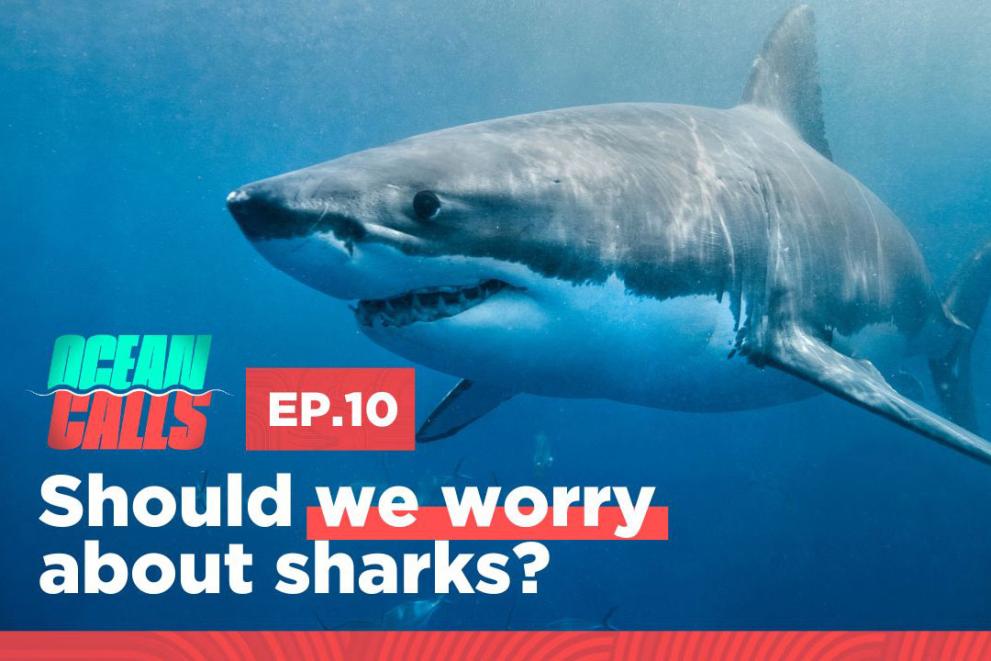Objectives
Since the mid-1980s, sharks have been under increasingly intense fishing pressure due to higher demand for shark products (meat, fins, skin, cartilage, etc.), especially in Asian markets. The over-exploitation affects the fragile shark populations.
The EU strategy for sharks includes
- a strict protection of endangered species
- sustainable management of commercial species, including a strict fins-naturally-attached policy
- improvement of data collection
- support to research related to the biology, ecology and management
- enforcement of relevant rules
- traceability and certification of sustainably harvested shark products
Shark finning is the practice of cutting off the shark fins and returning the remaining body to the sea, often still alive. The practice has been prohibited in the EU waters and for all EU vessels fishing worldwide. This is complemented by trade-related instruments to ensure that trade is not harmful to the conservation of shark species.
Actions
The EU is among the front runners in promoting conservation and sustainable management of sharks worldwide, at bilateral and multilateral level in particular through its participation in Regional Fisheries Management Organisations RFMOs) and other relevant international organisations.
Action plan for the conservation and management of sharks
In 2009, the Commission has adopted the action plan for the conservation and management of sharks (EU-POA Sharks) that was endorsed by the EU Council. This plan was inspired by the International Action plan for the Conservation and Management of Sharks (IPOA SHARKS) adopted by the United Nations Food and Agriculture Organization (FAO) in 1999.
Memorandum of understanding on the conservation of migratory sharks
The EU has also been the first signatory to the memorandum of understanding on the conservation of migratory sharks, the first global instrument for the conservation of migratory species of sharks and rays.
CITES (Convention on International Trade in Endangered Species of Wild Fauna and Flora)
CITES aims to protect wild animals and plants against over-exploitation through international trade. In 2022, nearly 100 additional species of sharks and rays, and three species of sea cucumbers, were added to the CITES appendices. Amongst the sharks, the EU co-sponsored Panama’s proposal for listing the family of requiem sharks in CITES Appendix II, including blue shark. The listing will enter into force on 25 November 2023.
Common fisheries policy (CFP)
The common fisheries policy (CFP) provides the tools and the framework to adopt science-based measures to minimise negative impact of fishing activities on marine species and habitats. The Commission monitors the implementation of the EU strategy and state of sharks and, in line with the CFP objectives, ensures a coherent approach between the internal and external fishery policy for sharks.
European Maritime, Fisheries and Aquaculture Fund (EMFAF)
Furthermore, the European Maritime, Fisheries and Aquaculture Fund (EMFAF) provides the possibility for EU countries to use the fund in order to provide support for innovative fishing techniques, more environmentally friendly and selective fishing gears. This also contributes to the sustainable management of many sharks and safeguarding many jobs of fishing communities.
Stop finning – Stop the trade - European Citizens' Initiative
Since 2020 over 1 million Europeans signed the European Citizens’ Initiative 'Stop finning – Stop the trade'. This reflects public concerns about the sustainability of shark fishing and trade worldwide and the practice of finning.
The Commission commits to:
1. Examine the opportunity of taking a legislative measure to end trade in loose shark fins
- start an impact assessment (end of 2023) on the environmental, social and economic consequences of applying the “fins naturally attached” policy to the placing on the EU market of sharks, whether within the EU or for international trade (imports and exports).
-
A call for evidence was launched on 21 February 2024 and is open until 16 May 2024. On 12 March 2024 the European Commission published an open public consultation.
The feedback received through both the call for evidence and the consultation will feed into an ongoing impact assessment process.
- develop more detailed EU import and export data to improve statistics on trade in shark products
2. Better enforce the EU’s already strong traceability measures
- strengthen the enforcement of EU law that applies to the entire value chain: control of fishing at sea, full traceability of shark products from landing to consumer, consumer information, and prevention and redress of illegal trade
- ensure the collection and reporting of complete and reliable information by fishermen and Member States’ authorities on all these aspects
3. Step up the EU’s international leadership
- strengthen the effective implementation of conservation and management measures for shark species and advocate for a worldwide ban of shark finning
- encourage the reduction of demand for shark fins
- fight against shark fins trafficking
See the Commission’s response, factsheet and the Communication from the Commission on the European Citizens' Initiative (ECI) "Stop Finning - Stop the Trade"
Documents
Media
Euronews Ocean: Shark SOS: The initiatives seeking to revive Europe's predator populations
Sharks, as apex predators, are crucial for the well-being of marine ecosystems and serve as a barometer of ocean health. However, many shark populations are now critically endangered. Shark fins have become some of the sea's priciest exports to Asian markets. On top of this, many shark species are often accidentally caught as bycatch.

OCEAN CALLS Podcast: Shark populations are declining, but are we really facing a crisis?
Many species of shark are in danger because of human activity and we really need them for our ecosystems to survive and thrive.
Listen to it in full on Euronews website
